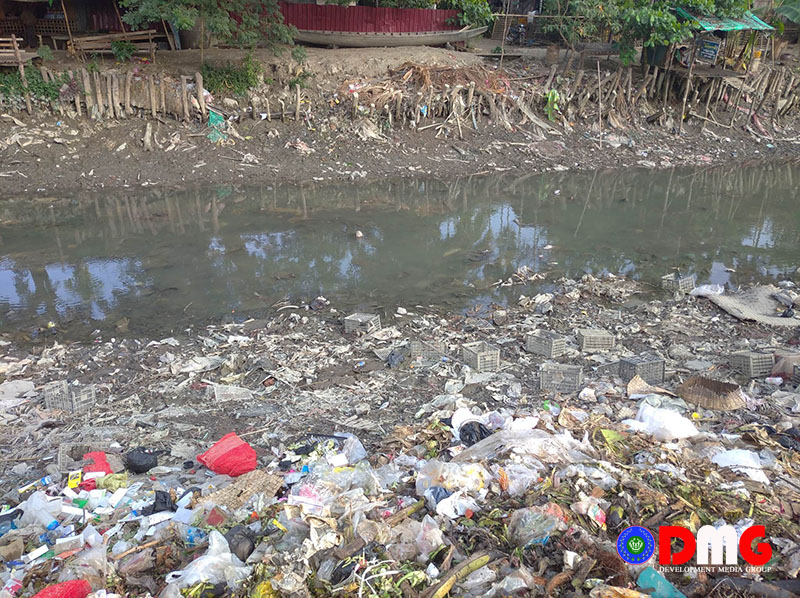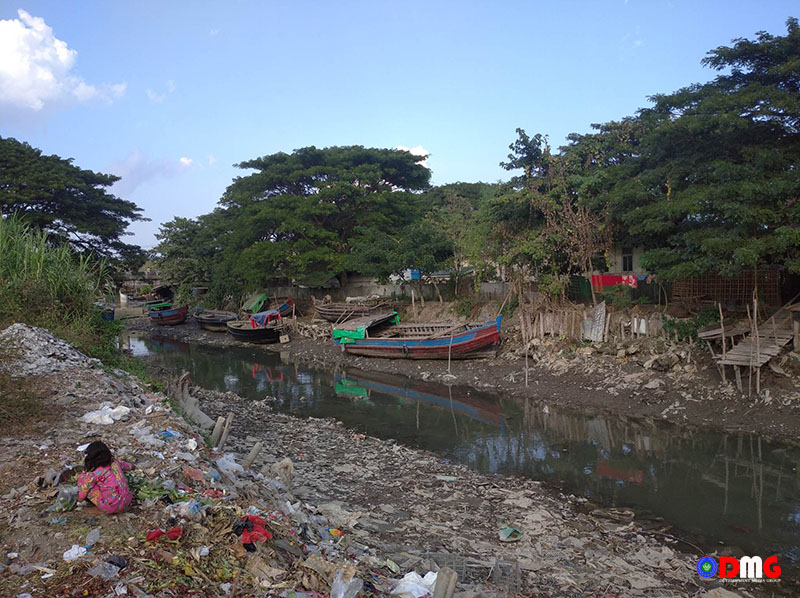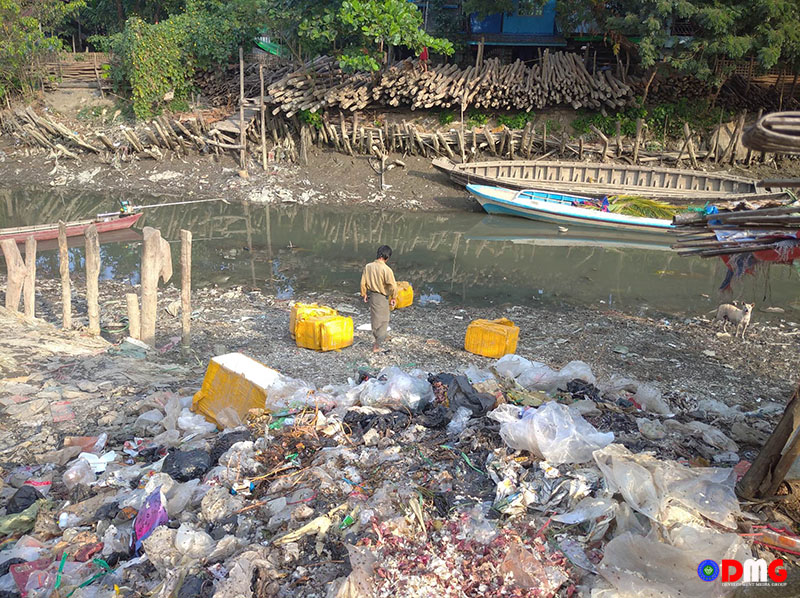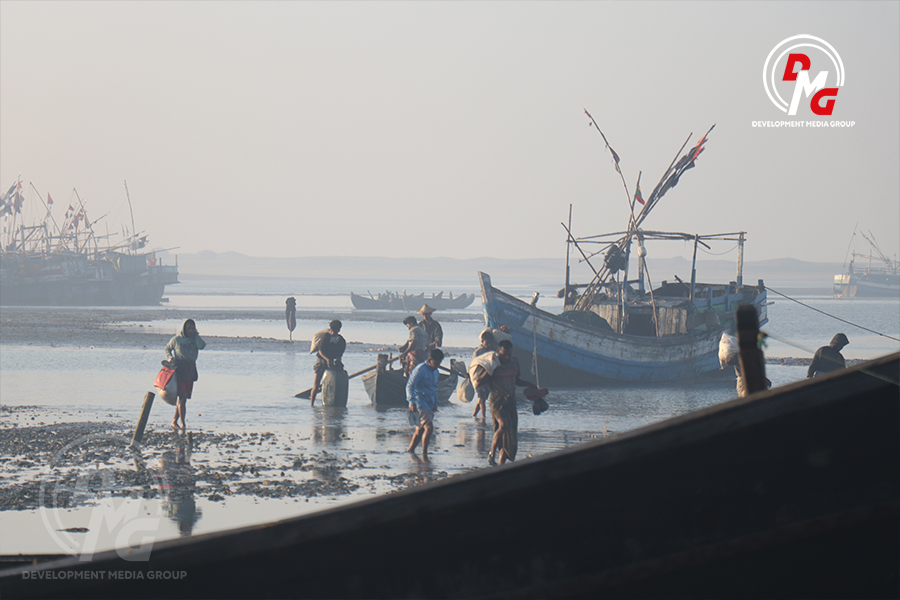- Weekly Highlights from Arakan State (Jan 26 to Feb 1, 2026)
- Arakanese youth stabbed in Mae Sot urgently needs financial aid for medical treatment
- Five years on Myanmar faces uncertain military and political outlook after coup
- Myanmar Navy detains Pauktaw fishermen and demands ransom
- Junta Airstrikes on Arakan and the Consequences for Independent Media
Trash clogs Minbya creek
Zaychuang Creek, near the central market in Arakan State’s Minbya Township, is getting shallow and clogged due to littering.
19 Dec 2022

DMG Newsroom
19 December 2022, Minbya
Zaychuang Creek, near the central market in Arakan State’s Minbya Township, is getting shallow and clogged due to littering.
The creek is a tributary of the Leymyo River (known locally as the Yar Maung River), and flows through urban wards from the market to Kin Seik Ward, stretching about a mile.
“Trash has clogged the creek because the municipality is not working hard enough. It is also because it failed to educate the public properly. The creek is therefore getting shallow, and stinks,” said a resident of Zay Haung Ward.

“We have put up educational posters,” countered U Thant Myint, assistant director of the Minbya Township municipality. “But people are not disciplined. It has become a routine for them to throw garbage into the creek.”
Sawmills and rice mills along the creek also dump garbage into the creek, he added. “We can only collect garbage from the market. As for the long-term plan, we have to dredge the creek,” he said.
When asked by DMG, Minbya Township administrator U Myo Soe Moe said: “We have heard nothing yet.”
Previously, boats of various kinds could use the creek year-round, but passage is impossible now, said Ko Myo Thant Zaw of Zay Haung Ward.

“We can easily walk through the creek even if the tide is in. When the tide is out, the creek is stagnant with trash, and stinks,” he said.
The creek is clogged because shop owners at the market and residents of wards along the creek are dumping their household garbage into the creek, he added.
“The creek is getting shallow. Boats can only enter the creek when the tide is high. Things have become difficult for those whose livelihoods depend on the creek,” said Ko Myo Thant Zaw. “So, we want authorities to handle it.”















.jpg)

